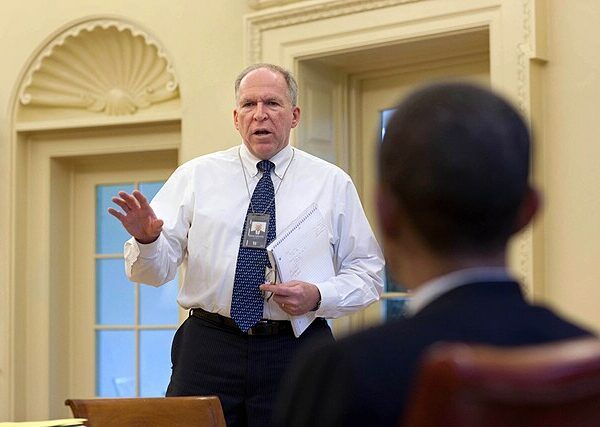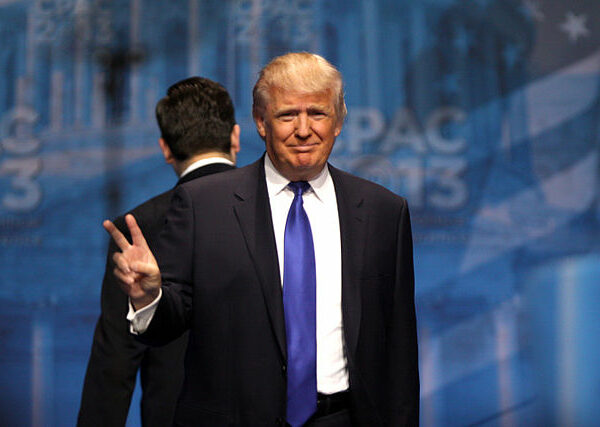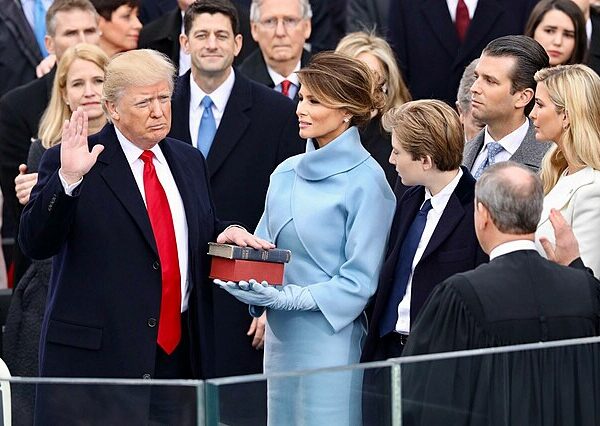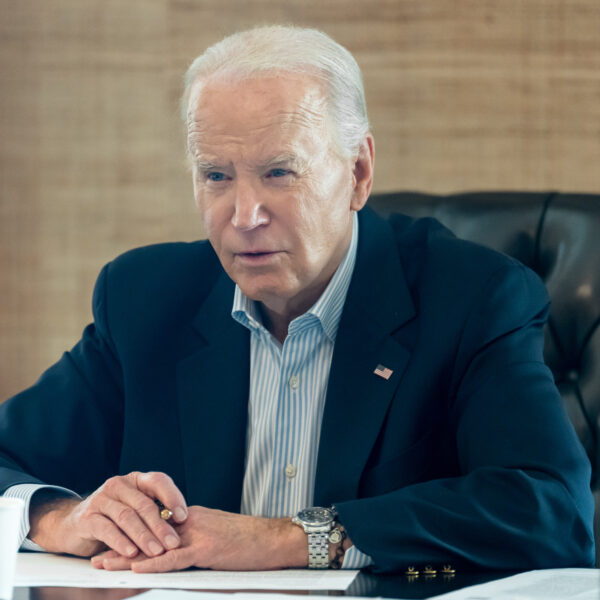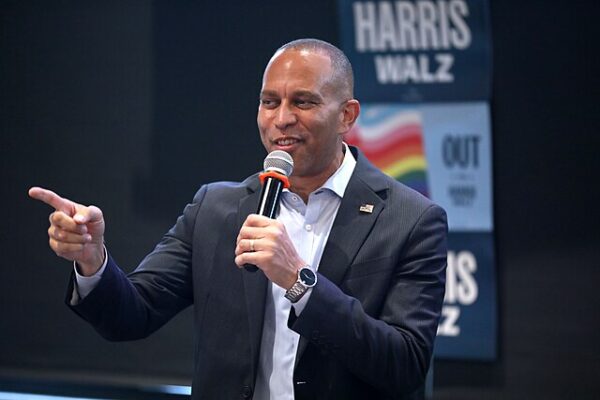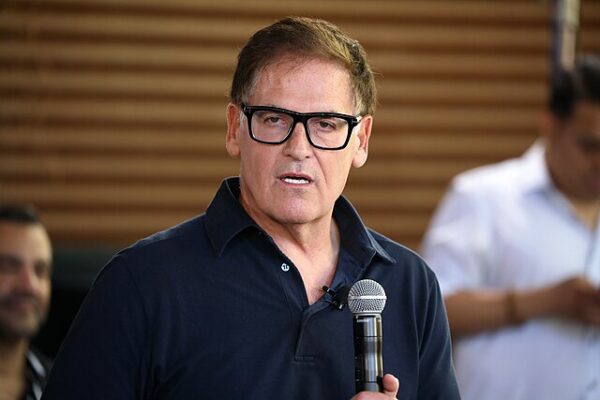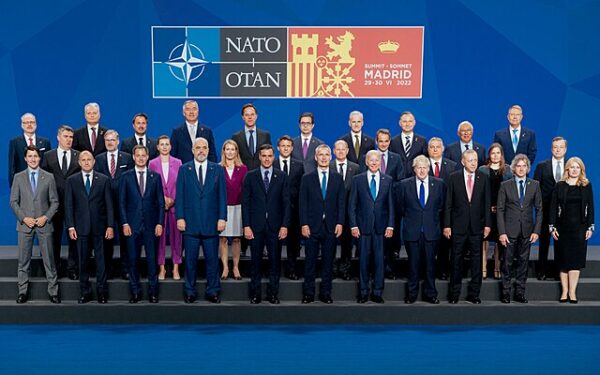
One of the leading Republican candidates for 2024 has offered the most dramatic change in American foreign policy over the past 80 years. Vivek Ramaswamy, considered a stalking horse for Donald Trump by many, stated that he believes the United States should consider withdrawing from both NATO and the United Nations.
Politico asked Vivek Ramaswamy, the entrepreneur polling fourth nationally and in Iowa, about a Rolling Stone article detailing how the GOP frontrunner, former President Donald Trump, was open to taking the U.S. out of the transatlantic military alliance. He answered by supporting the notion, but didn’t commit to following through if he were elected president.
“It’s a reasonable idea that I have considered,” he said in a brief statement.
Ramaswamy didn’t detail, even after questioning, why he was amenable to a NATO withdrawal. Unsolicited, the candidate added that “I am also open to reevaluating U.S. involvement in the UN” without expounding further, even after more queries on the subject.
Still, the statement makes clear that Ramaswamy is mulling a radical shift in U.S. foreign policy, one that would see the United States withdraw from alliances and institutions it helped found after World War II. Ramaswamy’s stance means at least two of the top four Republicans vying for the nomination are skeptical that remaining in such organizations is beneficial for America’s foreign policy goals.
Vivek’s comments are likely being used to test the waters on pulling out of NATO for Trump. Rolling Stone reported earlier in the week that “Donald Trump wanted to pull the United States out of NATO during his first term, but was repeatedly talked out of it by senior administration officials. For a possible second term in the White House, the 2024 Republican presidential frontrunner is already discussing how he could actually get it done, if his demands aren’t met by NATO. He and his policy-wonk allies are also gaming out how he could dramatically wind down American involvement to merely a ‘standby’ position in NATO, in Trump’s own words.
When the former president has privately discussed the United States’ role in the transatlantic military alliance this year, Trump has made clear that he doesn’t want the upper ranks of a second administration to be staffed by “NATO lovers,” according to two sources who’ve heard him make such comments. The ex-president has made these kinds of jabs at the longstanding alliance during conversations related to the ongoing Russian war in Ukraine.
Trump, the sources say, has continued to express an openness to pulling the U.S. out of NATO altogether. However, Trump has suggested that this could be averted if the alliance — which Trump once famously called ‘obsolete’— gives in to his newest demands. This would include his desires for non-American members to further and steeply increase their defense spending, and for a reevaluation of the bedrock principle that an attack on one member is tantamount to an attack on all.
When he was in office, Trump would repeatedly scoff at this collective-defense clause of the North Atlantic Treaty, known as Article 5. One former senior administration official recalls to Rolling Stone a moment in the Oval Office in mid-2018 when the then-president started reading from a written list of smaller NATO countries, some of which he argued most Americans had never even heard of before.”
According to the report, the former president did not like the idea that he had to automatically start World War III over some of the smaller countries in the alliance. He has long been a critic with how the alliance works.
….On top of it all, Germany just started paying Russia, the country they want protection from, Billions of Dollars for their Energy needs coming out of a new pipeline from Russia. Not acceptable! All NATO Nations must meet their 2% commitment, and that must ultimately go to 4%!
— Donald J. Trump (@realDonaldTrump) July 12, 2018
In 2018, foreseeing Russian aggression rising, Trump demanded that NATO members increase their defense spending to reach at least the minimum target of 2 percent of their GDP. At the time, only five of NATO’s 29 members met the agreed upon target, the United States, Greece, Estonia, the UK, and Latvia.
Trump’s demand worked. According to information released on July 7, 2023, ten of the 31 alliance members have reached two percent of GDP on defense.
One outlet has documents that “twelve countries are spending better than 1.5 percent of GDP on defense, and only one member—Luxembourg—is spending less than one percent. The overall median is 1.87 percent for the alliance. The values for 2023 are estimates based on member reports, NATO said.
In the 16 months since Russia invaded Ukraine, NATO as a whole has also seen an overall eight percent real increase in defense spending above inflation, compared with two percent in 2022. In the same period, overall NATO member spending on equipment leaped from 8.5 percent real growth to 24.9 percent of real growth above inflation.
NATO’s overall, inflation-adjusted defense spending is also well up. In 2014, NATO was collectively spending $910 billion annually on defense, but in 2023, that figure is $1.1 trillion. While U.S. defense spending has grown from $660 billion to $743 billion during that period, the defense spending of the rest of NATO has increased at a higher pace, from $250 billion in 2014 to $356 billion in 2023. Some of that growth, however, was due to adding three new NATO members since 2017: Macedonia, Montenegro, and Finland.
As a share of its GDP, Poland is the biggest defense spender in NATO, budgeting 3.9 percent in 2023. The U.S. is second, spending 3.49 percent, followed by Greece at 3.01 percent, Estonia at 2.73 percent, and Lithuania at 2.54 percent. Luxembourg, at 0.72 percent, is the smallest spender, followed by Belgium at 1.13 percent, Spain at 1.26 percent, Turkey at 1.31 percent, and Slovenia at 1.35 percent.
The nations seeing the greatest increase in defense spending since 2014 are mainly in Eastern Europe, closest to the fighting in Ukraine, with Lithuania, Finland, Romania, Hungary and Latvia, and Slovakia all seeing a jump from about 1-1.5 percent of GDP to about 2-2.5 percent.”
[Read More: Billionaire Tapes Embarrass Trump]

